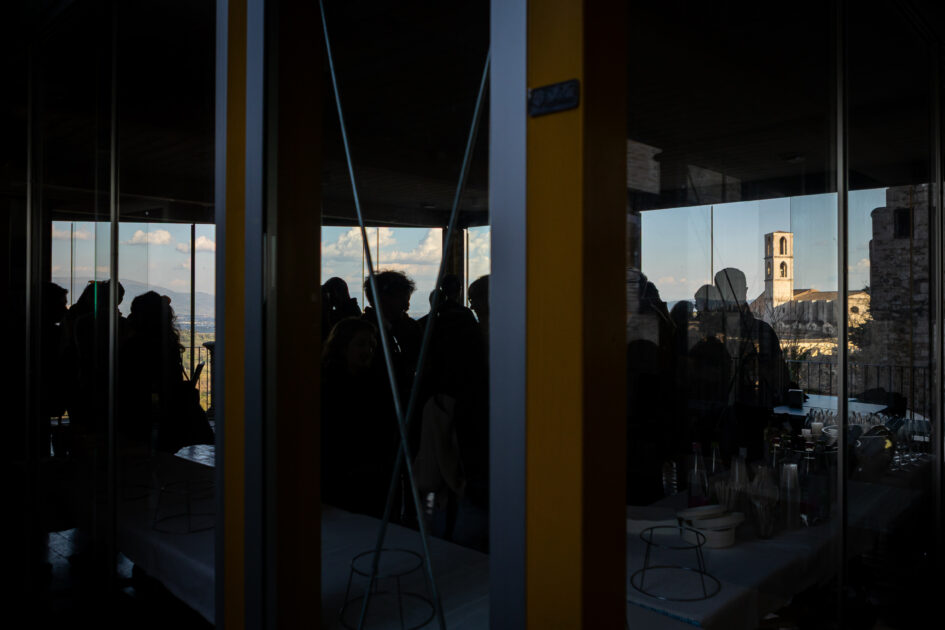After catching up with the team, let me join in on reflecting the 2025 International Journalism Festival. I’m Marlene Keller, first intern, and working student, now managing community engagement at Hostwriter, catching my breath from my first, very exciting and overwhelming experience in Perugia.
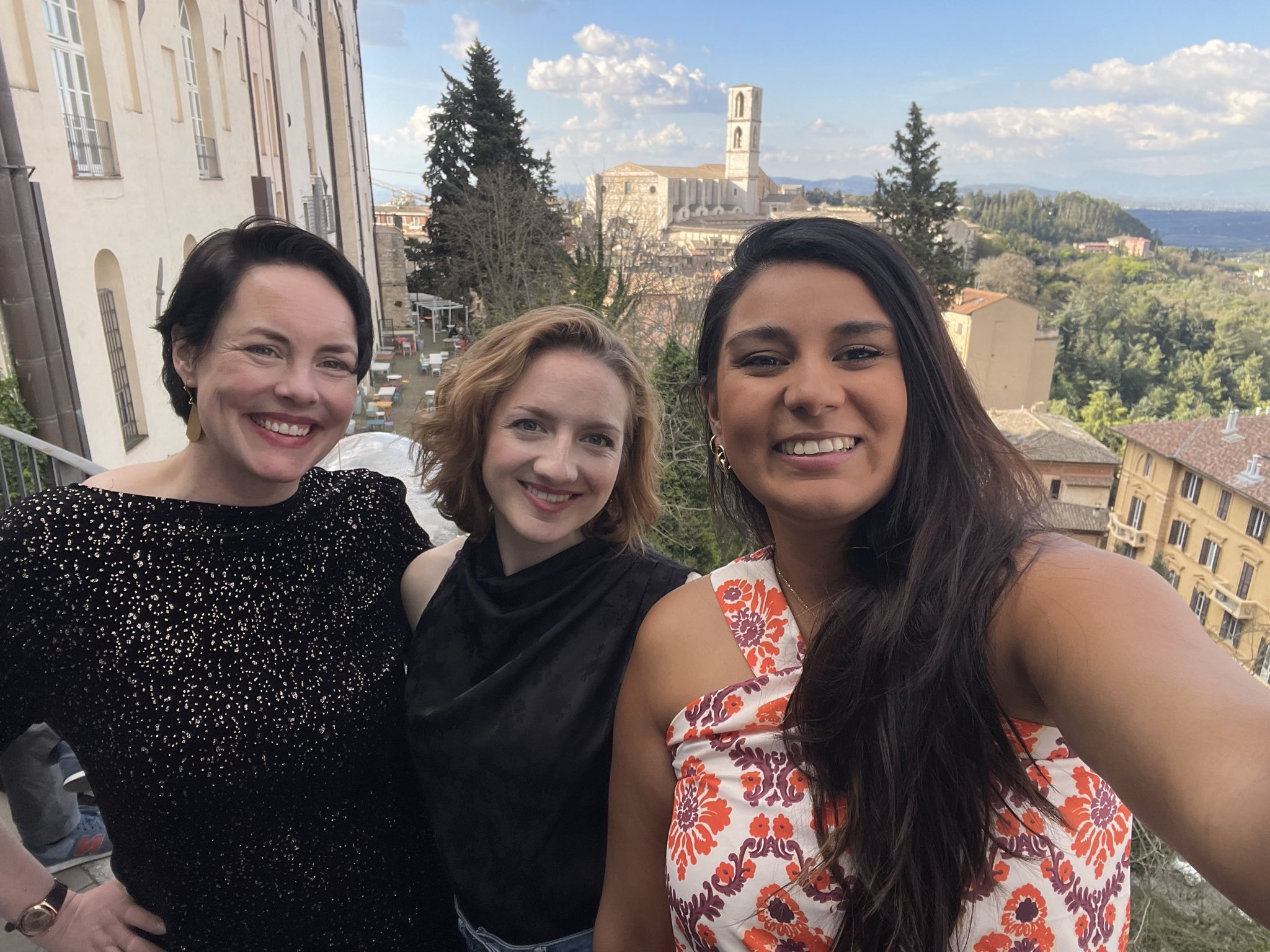
I realized there are two kinds of people at the festival: the seasoned pros who network, reconnect, and follow up with a clear plan – and the newbies like me, who rush from one panel to another, follow the lead of their more experienced colleagues, and shake hands with some of the most prominent journalists they are meeting for the first time.
I’m incredibly thankful to Julia Vernersson, our Co-Managing Director and Gabriela Ramírez, Multimedia Editor at Unbias the News, for letting me tag along and showing me the ropes, a testament of the true spirit of Hostwriter Network and the Unbias The News Team.
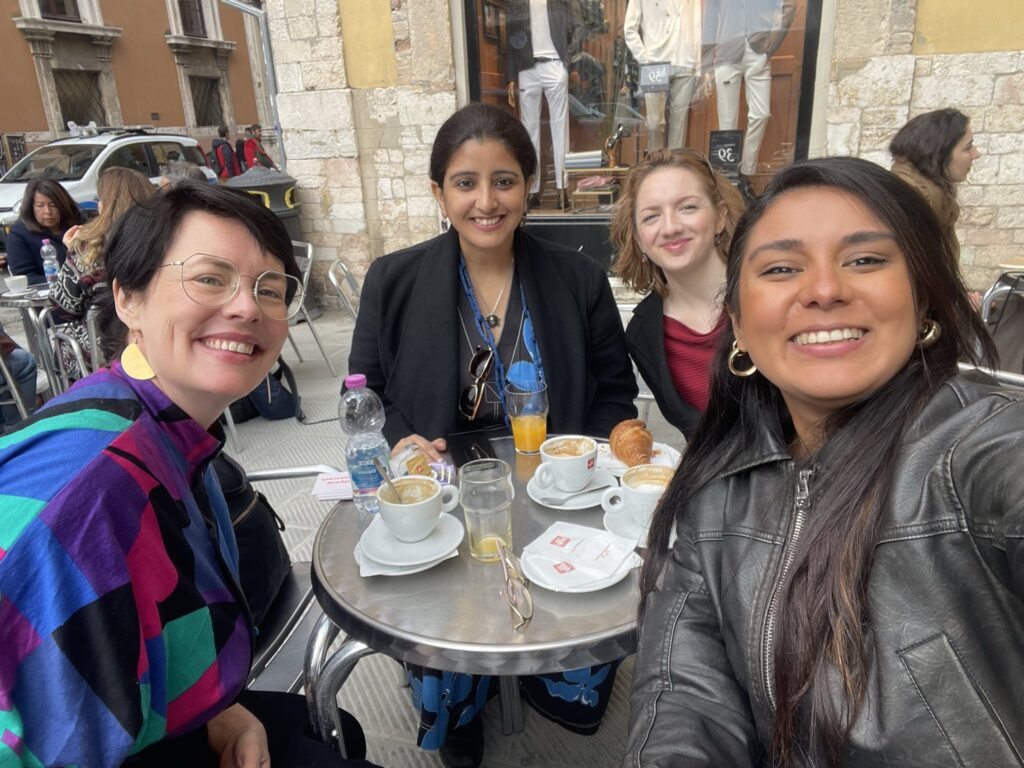
So here’s my humble attempt to share a few takeaways from the 2025 International Journalism Festival in Perugia – knowing, of course, that four days packed with conversations and ideas can’t be summed up in just a few words.
I want to start by quoting Gabriela who perfectly captured the spirit of this years’ International Journalism Festival – the feeling that we have to do better.
“One of my main insights this year came from the panel on “The Weaponisation of Nostalgia”, with the always sharp Maria Ressa and Natalia Antelava among others. They brought clarity to a truth many of us feel but struggle to name: facts alone are no longer enough. We’re not just confronting misinformation—we’re confronting emotional manipulation, historical revisionism, and institutional capture across media, academia, and civil society. The conversation was a wake-up call to stop playing defense and start building narratives and alliances rooted in shared values. If we want journalism to survive—and matter—we have to reimagine not just how we report, but who we’re reporting for.”
Gabriela Ramírez, multimedia editor
Many of the panels and conversations we attended were especially attuned to the role of independent, public interest journalism in today’s increasingly strained news landscape.
Navigating exactly that space, Hostwriter organized a networking event as part of the Display Europe project (https://displayeurope.eu/de) on the topic of centered control over information in the digital sphere “Display Europe networking event: ethics, power, and trust in the digital age”. We gathered to the backdrop of the scenic views of Perugia, exchanging ideas and thoughts in private conversations.
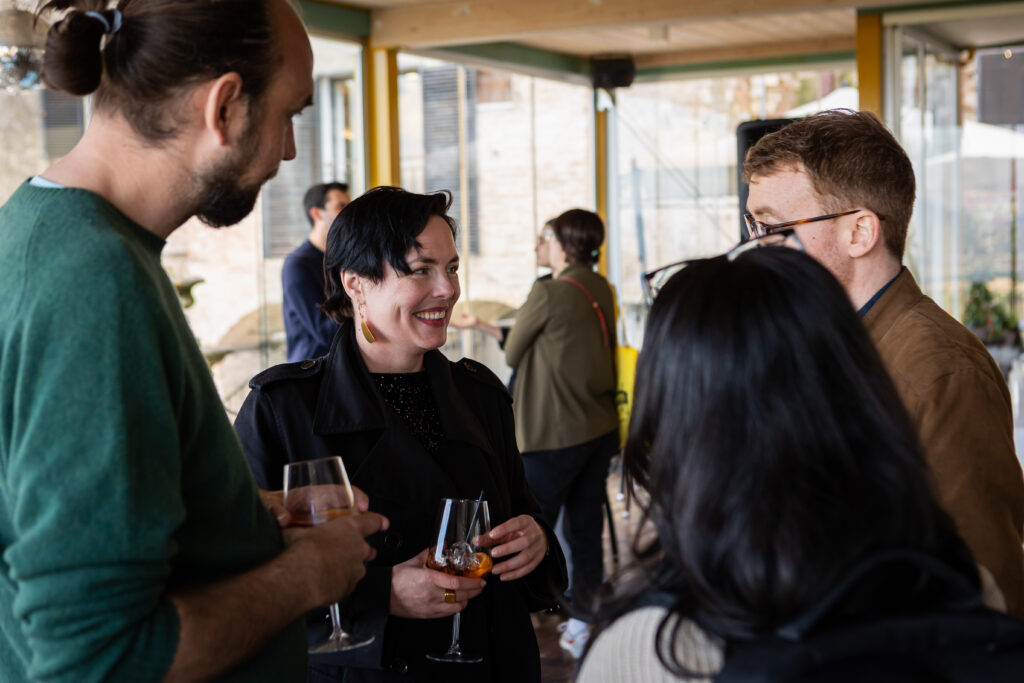
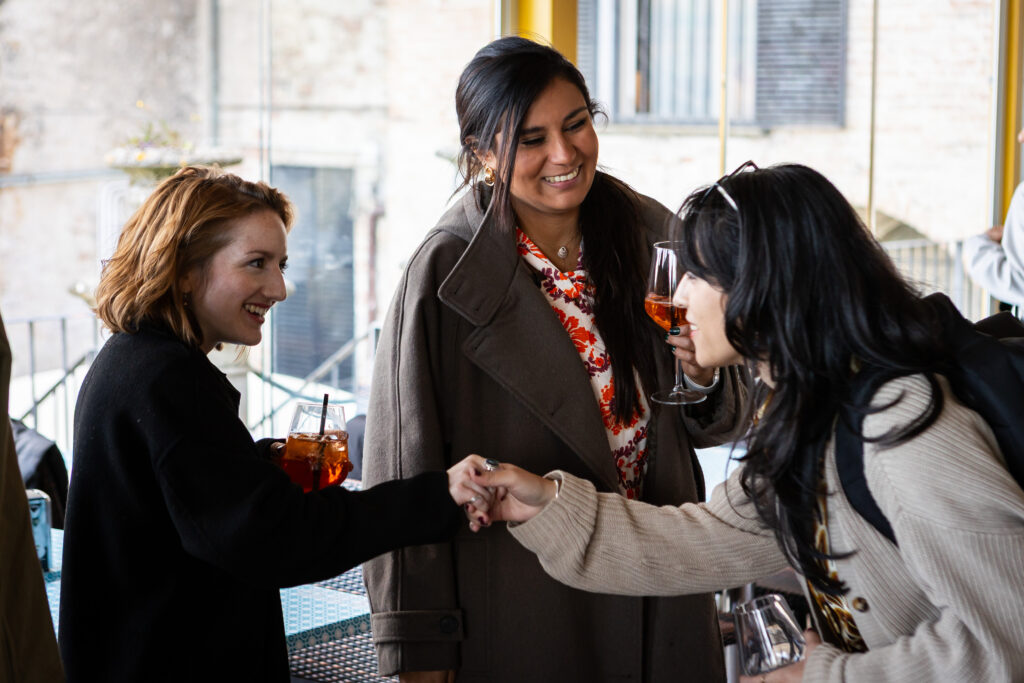
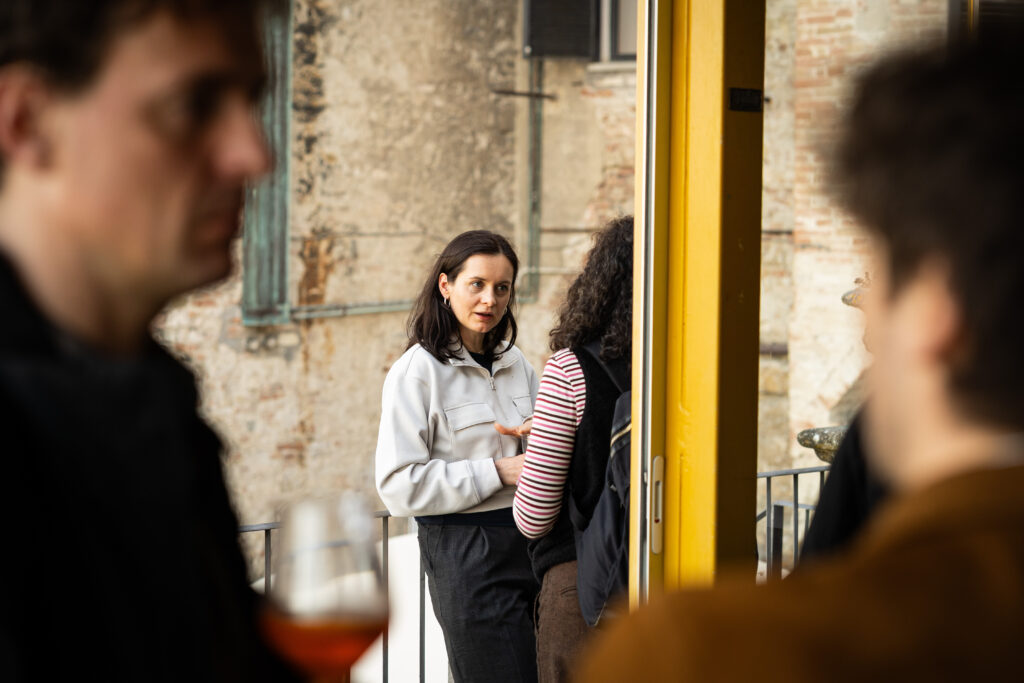
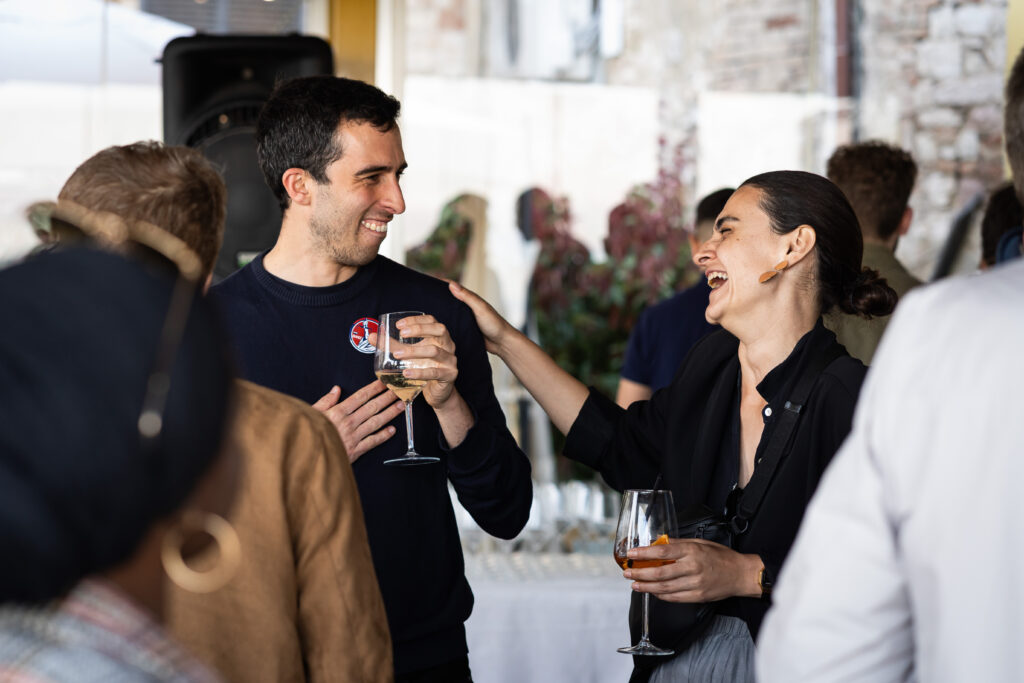
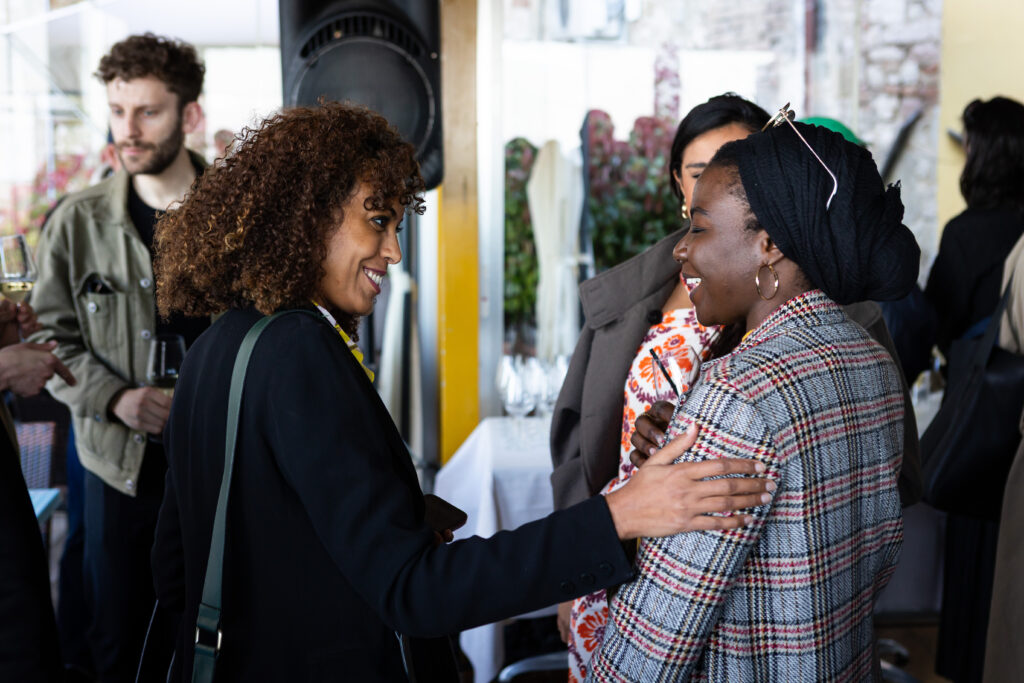
“With newsrooms increasingly under pressure, and the world feeling like it’s on fire, it meant a lot to meet in person — to exchange, share ideas, and catch up with both new and familiar faces about what’s next and how to move forward.”
julia vernersson, co-managing director
It is a privilege and comes with a great sense of companionship to come together with an impressive crowd of like-minded and driven people from all over the world.
As I look back at all the notes that I took during countless sessions I can’t help but notice that from upholding human rights standards and diversity to bringing cases of structural inequalities and harm to the fore – the journalist community is learning from mistakes. At least the ones who are willing to sit down to reflect, unlearn and rebuild. That is, if you have the luxury to do so.
The question of impact versus activism echoed through various panels, along with the anxiety of being labeled as an activist-journalist not taken seriously. It struck me what Ruona Meyer said, discussing “The impact/activism question, as seen from different parts of the globe”:
“When the root of Democracy is removed, sometimes impact begins to look like activism.”
ruona meyer
If democracy is a bias, so is feminism and human rights – It is time to be bold and not sit by as we watch democracy die in plain sight. Qualitative journalism is not objective, it is informative and truthful.
The audience needs to know where we are coming from and what our mission is to trust us – as long as we are able to agree on unshakable “yardsticks”, such as avoiding affiliation, PR, selecting sources and being diligent on cross-verification (Ruona Meyer).
Speaking of trust, on-the-ground, people-centered reporting creates richness and is a powerful tool to create credibility in times of algorithm-powered disinformation and connect to audiences, said Ken Roth on the panel “Journalism as an effective tool in upholding human rights standards”. It is time to remember where the quality in human reporting lies within the greater value chain of information and attention.
We also know all too well that a media system built to serve the privileged impacts whose stories are centered, and whose are erased. On the panel, “What we can learn from the media’s treatment of Gisele Pelicot?” Virginie Herz explained that the reason Pelicot´s story was picked up is because women journalists collaborated and together pushed for the coverage, reminding us that collaboration, advocacy, and intentionality can break the cycle of exclusion.
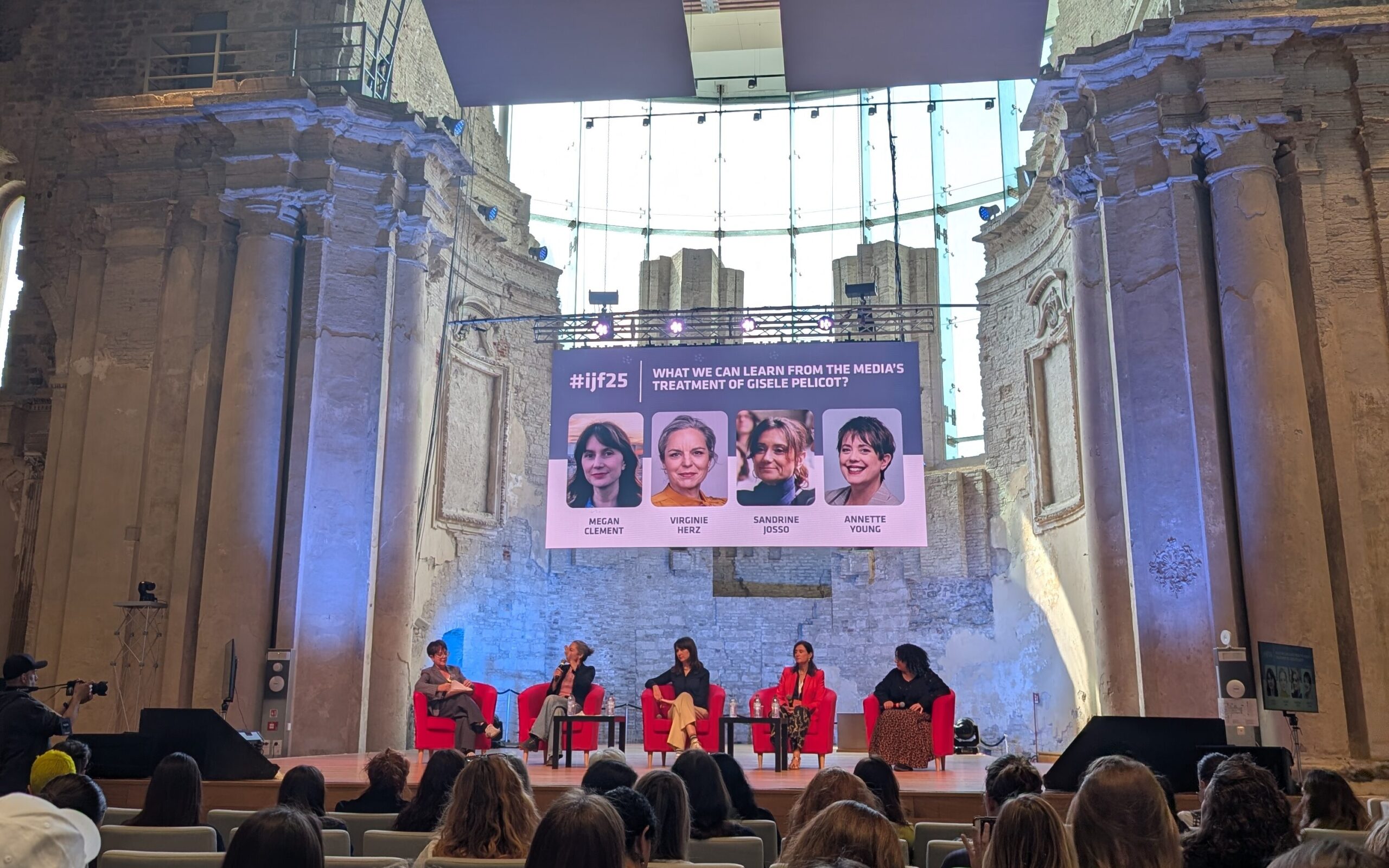
Making allies and constant advocacy can uncover trends and enable impactful reporting. In the same vein, Ritu Kapur on “Enemy of the people? The role of the media in an era of rising authoritarianism” was stressing that reporting shouldn’t start from a place of anger and frustration, but instead be intentional and focused – “everything for everybody journalism is over.”
With that in mind, being relevant to diverse communities also means being aware of practicing ethical, non-extractive reporting, especially in vulnerable contexts. The panel “Bridging ethics: lessons for mainstream and humanitarian journalism in crisis reporting” exposed the disconnect of who international news is about and who it is produced for. Instead of catering to the Western gaze, we should ask ourselves what type of impact are we creating for local communities and focus on local sources, people, topics and efforts – in short, context and reciprocity.
On the panel “Western journalism and its discontent in the MENA region” the panelists pointed out the perpetuation of language disparities that dehumanize Palestinian people whose voices, names, pictures, loved ones and dreams are omitted from news reports, and the lack of accountability for human rights abuses and use of passive voice when it’s about Palestinian lives – “attacked and detained by whom?”, “killed by whom?”, asked Ricardo Mir de Francia
“Don´t come teach us ´professionalism` anymore – it failed.”, says Zahera Harb, summarizing the discontent of Western media to Arab journalists.
Journalism itself can no longer afford to be passive or performative. When neutrality is used as a justification for inaction, the future of journalism lies in doing the work – grounded in purpose, informed by communities, and aligned with values that prioritize equity, truth, and impact.
We hope to see many more news actors reporting with intent, not just to inform, but to connect, challenge, and catalyze – embracing complexity, being transparent – not for the sake of the industry, but for the people it exists to serve.

